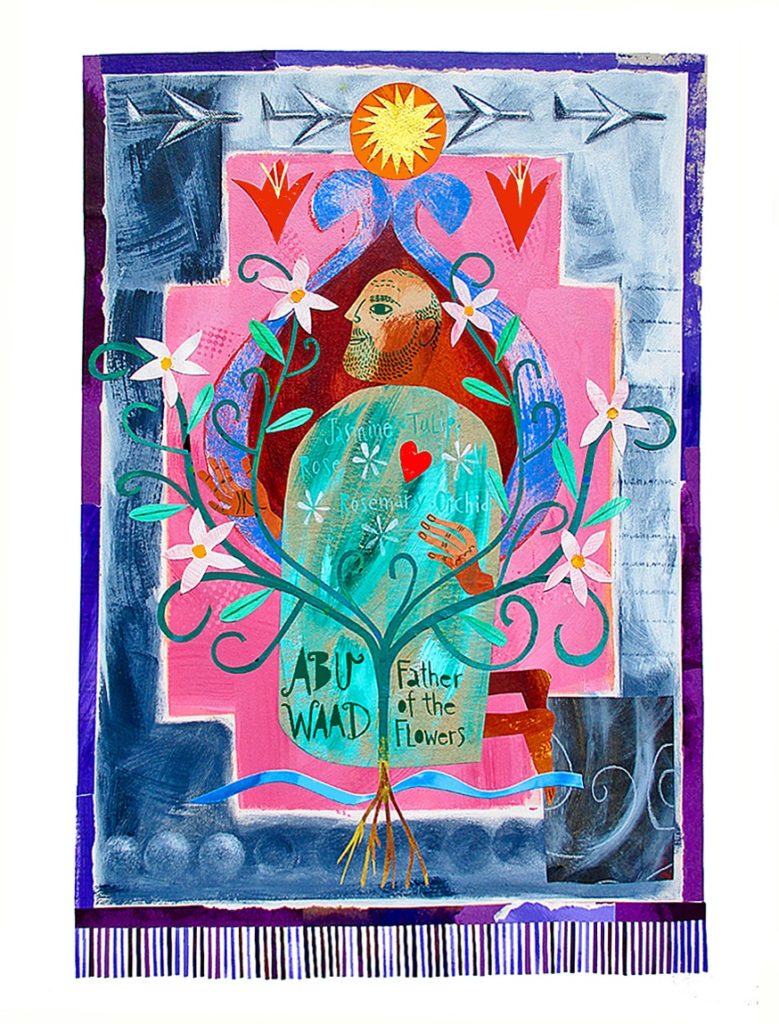
ERUM Aamir, Debbie Loane and Linda Combi form the suitably triangular structure of Pyramid Gallery’s summer show in York.
Not one, but three exhibitions will run in two rooms at the Stonegate gallery from Friday (9/7/2021) to September 5.
For Celestial Garden, Manchester ceramic artist Erum Aamir has made intricate porcelain sculptures that fuse her scientific research and artistic imaginations.
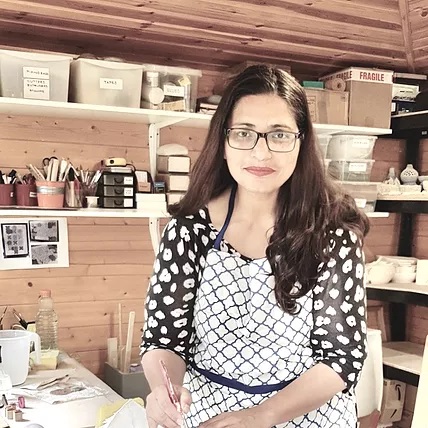
Erum was awarded first place for excellence at the 2020 British Craft Trade Fair in Harrogate by Pyramid proprietor Terry Brett, winning a solo show at Pyramid as the prize.
“I’m a ceramic artist and nature is a source of inspiration for me,” she says. “I enthuse by the details in depth, therefore I explore through the eye of a microscope. Sometimes the compositions found in the microscopic study and my imagination’s interpretation bypasses what is found in nature.
“This blurred line between reality and created reality intrigues my practice. If only for a moment, one might lose oneself in the curiosity of the composition, perhaps creating a personal narrative with the piece.
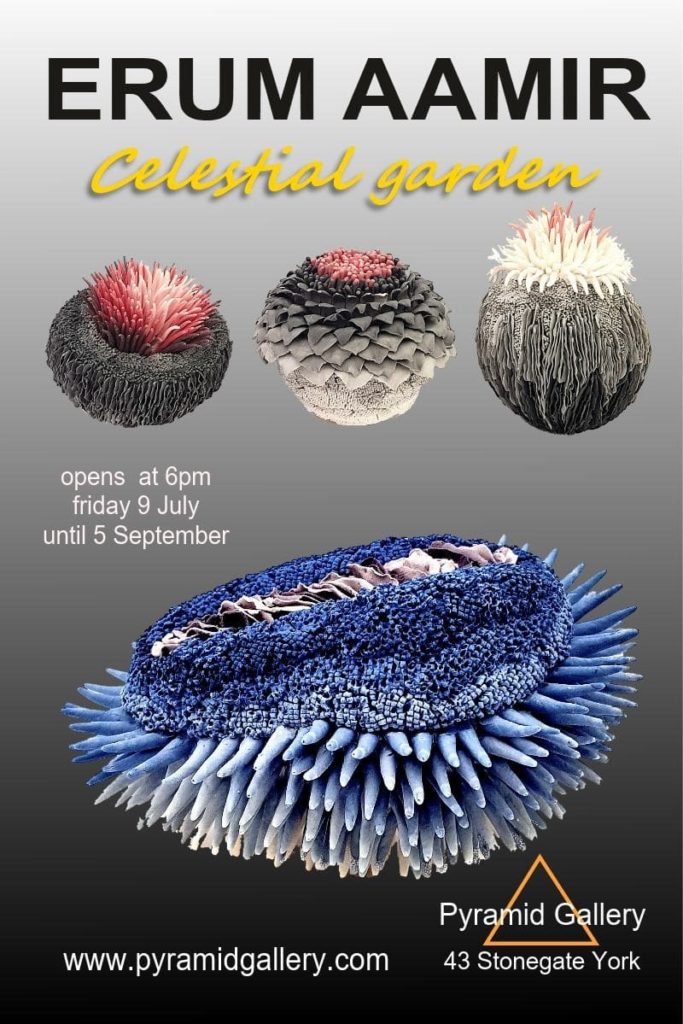
“This process of creation and exploration forms a shared experience between us. In my work, there’s always a repetition of single or more than one element which mimics the process of growth by repetition. I like this repetitive action – it’s not a thoughtless activity but is meditative.
“Moreover, the repetitive nature of bringing together many components creates a rhythm and facilitates an active trance of intention.”
Seascape and landscape paintings in assorted sizes by Easingwold artist Debbie Loane will complement Erum’s intricate sculptures in Pyramid’s upstairs front room under the title of The Peace Of Wild Places.
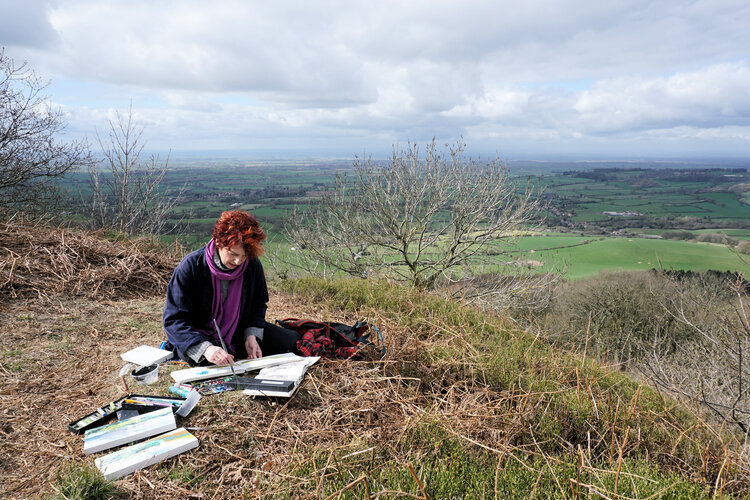
“As a painter, I’ve always sought out wild expanses, the vast open moorlands of the North York Moors or dramatic coastlines of the North for artistic inspiration,” says Debbie, who works from a farm home and studio in Alne Lane, just outside the market town of Easingwold.
“Over the past 18 months, when all our freedoms have been restricted, like so many I found myself seeking solace in the wild places I could find on my doorstep: a morning coffee taken on the doorstep in the morning sun watching a spider methodically weaving its web between a plant pot full of neglect and a wellie boot.
“The spider was completely at one with its environment knowing at once in that moment what it was supposed to be doing. How that spider taught me a lesson!”
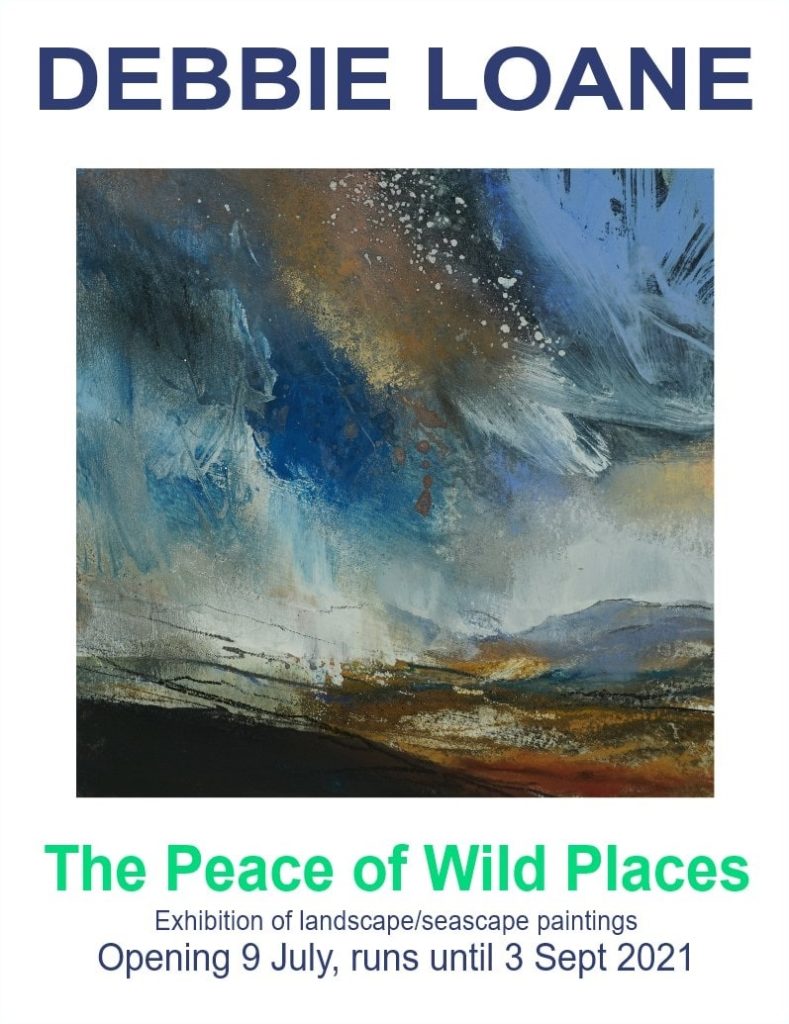
During the past lockdown when home-schooling and simply staying afloat financially became Debbie’s priorities, her creative endeavours shifted to focus on wider things. Such as? “Tree planting 1,400 new native trees on our land; sowing seeds; teaching myself new things to do with my hands, like crochet (maddeningly); making paints with natural materials and running for many miles through the landscape, both around my home and on my beloved North York Moors,” she says.
“Consequently, my relationship with nature has deepened, as has my understanding of why I paint and what I’m painting. That spider has taught me to trust my creative instincts, to pause when I need to, to explore when it is calling. Most importantly of all, I have discovered the landscapes and wildness that I need are as much within me as out there.”
In 2005, Debbie established Lund Gallery in converted farm buildings next to her studio. “To give me time to concentrate on my own practice, the gallery no longer has regular opening hours; it opens for pop-up exhibitions and events,” she says. To keep up with her gallery news, sign up to her mailing list via mailchi.mp/648cd8024ee3/debbieloane.
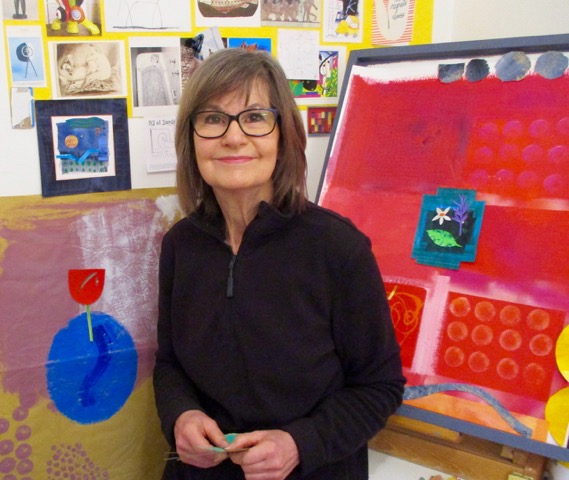
York artist Linda Combi will complete the trio of exhibitions with The Last Gardener Of Aleppo , a series of original collages and mixed-media artworks and giclee prints that form a moving tribute to Abu Waad in a charitable show in aid of The Lemon Tree Trust and the United Nations High Commissioner for Refugees.
In 2016 Krishnan Guru-Murthy presented a Channel 4 News story about “The Last Gardener of Aleppo” that introduced viewers to Abu Waad, whose name means “The Father of the Flowers”.
“This genial Syrian ran the last garden centre in the besieged city of Aleppo, assisted by his 13-year-old son Ibrahim,” says Linda, who first exhibited these works in a Covid-curtailed run at the Angel On The Green, Bishopthorpe Road. “Abu Waad told us of his love of flowers and plants; about how their fragrance, beauty, and resilience were life affirming and joyful.
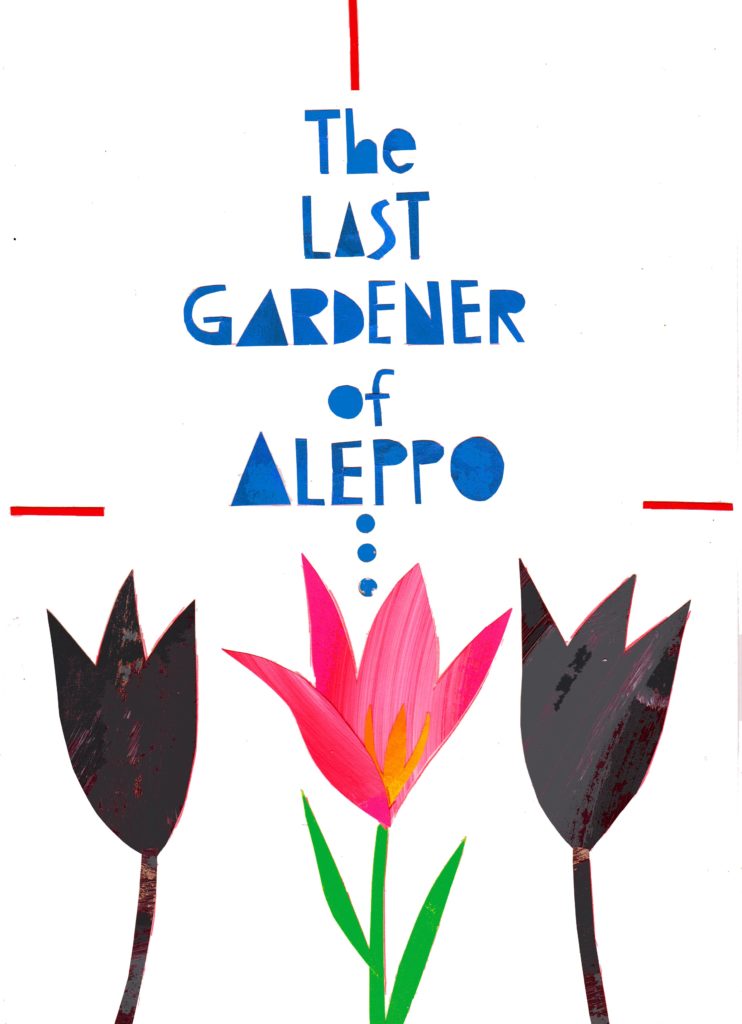
“We watched his large hands gently planting seedlings, pruning trees and making bouquets of roses for his customers. Despite the on-going bombardment, the growth and renewal within Abu Waad’s garden made it a ‘small oasis of colour and life’ amid the death and destruction.”
The Channel 4 film portrayed the bond between Ibrahim and Abu Waad as they worked together in the garden centre. “We see the father stretched out on an old settee during a tea break laughing with his son; a picture of relaxed contentment. But one can also detect fear and stress in the eyes of both of them,” says Linda.
The story closed with the death of Abu Waad, killed by a barrel bomb that landed near the garden centre. “His oasis is now closed, and Ibrahim is left without a father, lost and tearful as he visits his father’s grave,” says Linda.
“It is a devastating end, and so it felt important to me to celebrate Abu Waad and Ibrahim and their work in the oasis they created. I’ve illustrated the words of Abu Waad, which so perfectly describe the joy that plants and flowers can bring to us all.
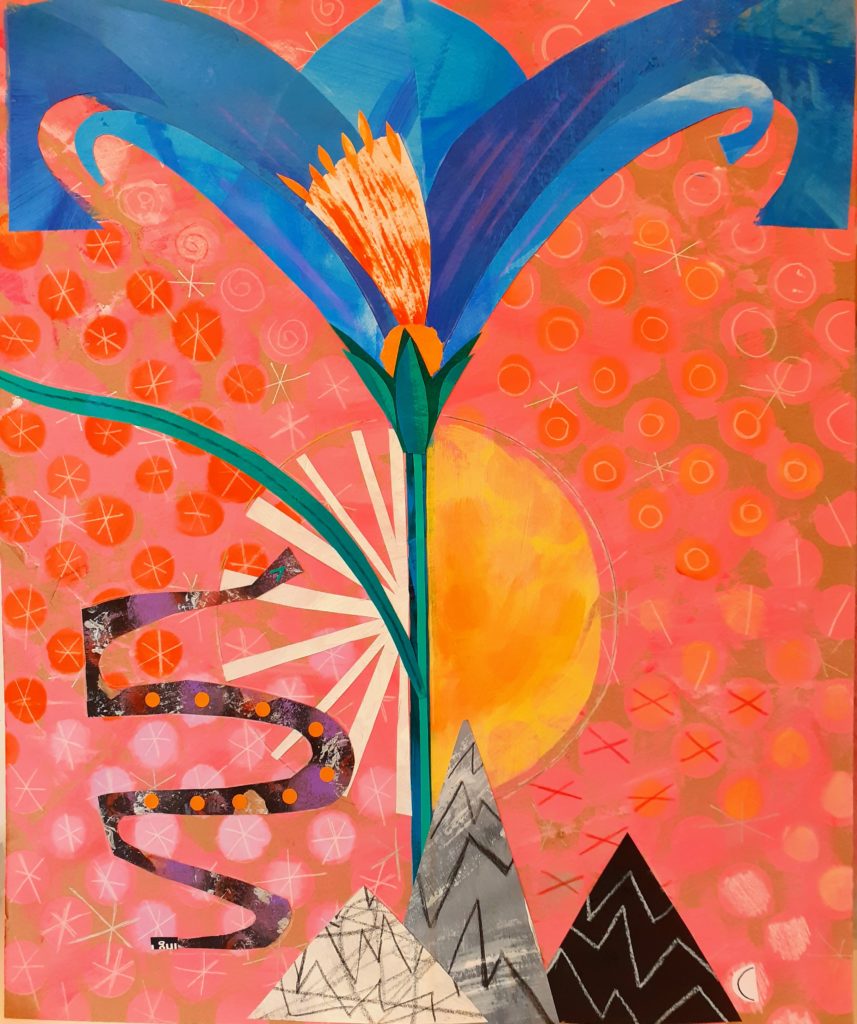
“However, hope returned earlier this year when I was contacted with news that Abu Waad’s son, Ibrahim, had been found and is living with his sister and an uncle in Syria.”
Ibrahim hopes to continue his father’s work as a gardener. “So far we’ve helped him buy a solar energy system,” says Linda. “The Lemon Tree Trust is aiming to help Ibrahim with seeds and equipment for his life as a gardener. My piece, Ibrahim’s Hope was made after receiving this good news.”
A percentage of proceeds from picture and card sales will be divided between the UNHCR [the United Nations High Commissioner for Refugees agency mandated to aid and protect refugees] and the Lemon Tree Trust charity that helps refugees create gardens in migrant camps.
Pyramid Gallery’s opening hours are: Monday to Friday, 10am to 5pm; Saturdays, 10am to 5.30pm; Sundays, 12.30pm to 4.30pm, but please check by texting Terry Brett on 07805 029254 to check a specific Sunday opening.
